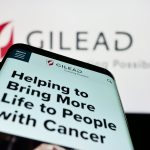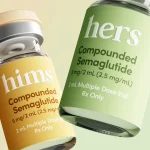
- Healthcare
- HealthTech
GSK Expands HIV Drug License to 133 Countries for Generic Production
6 minute read

Generic HIV drug manufacturers gain access to GSK’s injectable treatment formula across 133 developing nations to improve medication adherence
Key Takeaways
- GSK expands generic licensing to 133 countries for long-acting HIV treatment cabotegravir through extended Medicines Patent Pool agreement, covering both prevention and treatment uses
- Three established generic manufacturers authorized — Aurobindo, Cipla, and Viatris can now produce bimonthly injectable HIV therapy for Sub-Saharan Africa and low-income nations
- WHO endorses long-acting injectable alternative to daily oral therapy, recommending Cabenuva combination for virally suppressed patients struggling with adherence
Introduction
GSK extends its voluntary licensing agreement with the United Nations-supported Medicines Patent Pool to allow generic production of cabotegravir for HIV treatment across 133 countries. The pharmaceutical giant expands access to its long-acting injectable therapy in underprivileged regions, moving beyond the drug’s initial prevention-only licensing arrangement.
This development aligns with the World Health Organization’s updated guidance recommending Cabenuva—an injectable combination of cabotegravir and rilpivirine—as an alternative to daily oral therapy. The decision addresses adherence challenges among virally suppressed patients who struggle with daily pill regimens.
Key Developments
ViiV Healthcare, GSK’s majority-owned HIV subsidiary, announces the expansion of its 2022 licensing deal with the Medicines Patent Pool. The original agreement covered cabotegravir for pre-exposure prophylaxis (PrEP) but now includes treatment applications following WHO’s latest clinical recommendations.
Deborah Waterhouse, CEO at ViiV Healthcare, states the company takes pride in expanding voluntary licensing to include HIV treatment alongside prevention. The long-acting medication, known commercially as Apretude for prevention, received FDA approval in 2021 for bimonthly administration.
Three generic manufacturers—Aurobindo, Cipla, and Viatris—gain authorization to develop and supply the treatment across Sub-Saharan Africa and other low-income nations. These companies can now produce cabotegravir for combination use with long-acting rilpivirine, subject to regulatory approvals in target markets.
Market Impact
The expanded licensing agreement follows recent competitive moves in the HIV prevention space. Last month, Gilead secured FDA approval for Yeztugo as a biannual alternative to GSK’s Apretude, intensifying competition for long-acting PrEP market share.
Gilead simultaneously announced plans to supply Yeztugo to low-income nations at not-for-profit pricing through a Global Fund partnership. According to FiercePharma, this agreement targets 2 million people over three years across 120 resource-limited countries.
The licensing strategy allows GSK to maintain premium pricing in high-income markets while securing reputational capital and potential royalty streams from generic producers. Manufacturing complexity for long-acting injectables may limit the number of capable generic entrants, moderating immediate price competition.
Strategic Insights
GSK’s approach reflects a broader pharmaceutical industry trend toward voluntary licensing in global health. Companies balance social responsibility objectives with commercial interests by allowing generic competition in markets with limited revenue potential while preserving exclusivity in wealthier regions.
The long-acting injectable format represents a significant clinical advance over daily oral medications. ViiV Healthcare’s Phase IIIb VOLITION trial data shows 89 percent of treatment-naïve HIV patients chose to switch to long-acting injectable therapy after achieving rapid viral suppression.
This shift toward person-centered HIV treatment emphasizes patient choice and convenience, particularly for populations struggling with daily adherence. The combination therapy approach addresses WHO recommendations for patients with viral suppression but ongoing adherence challenges.
Expert Opinions and Data
Charles Gore, executive director of the Medicines Patent Pool, emphasizes the deal’s role in promoting equitable HIV responses through person-centered treatment options. The agreement covers all least-developed, low-income, lower middle-income, and Sub-Saharan African countries where patent rights allow.
Meg Doherty, director of WHO’s global HIV, hepatitis, and STI programs, highlights the organization’s commitment to offering alternatives to daily regimens. The WHO guidance reflects growing recognition of adherence challenges in HIV treatment, particularly in resource-limited settings.
Sub-Saharan Africa accounts for nearly two-thirds of all people living with HIV globally according to UNAIDS data. The region represents the primary target for expanded access initiatives, given both disease burden and economic constraints on healthcare systems.
Industry analysts view the licensing expansion as pragmatic business strategy that blends social responsibility with commercial acumen. The approach sacrifices exclusivity in markets with limited commercial returns while maintaining revenue potential in developed economies.
Conclusion
GSK’s expanded licensing agreement positions the company as a leader in global HIV access while preserving commercial interests in premium markets. The deal enables three major generic manufacturers to supply long-acting cabotegravir treatment across 133 countries, addressing both prevention and treatment needs.
The timing aligns with WHO recommendations for injectable alternatives and competitive pressure from Gilead’s similar access initiatives. GSK maintains its innovative edge in long-acting HIV therapies while fulfilling corporate social responsibility objectives in regions with the greatest medical need.







